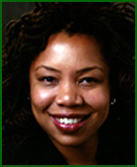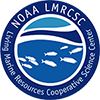
PROGRAM DIRECTOR (Savannah State University)
Associate Graduate Professor in Marine Science
Savannah State University (SSU)
Phone: (912) 358-4289 | Email: hoskins@savannastate.edu | Fax: (912) 358-4792
Website | Faculty Spotlight | SCCPSS Spotlight
- Emmeline Moore Prize from the American Fisheries Society in 2016
- Chairman, Gullah-Geechee Cultural Heritage Corridor Commission, 2017 – Present
- Representative, SCCPSS Board District 2. 2011 – Present.
Education
University of South Carolina, South Carolina (1999)
Ph.D., Marine Sciences
Savannah State College, Savannah, GA (1992)
B.S. (Marine Biology)
Research Interests
- The ecology of deposit feeding organisms in marine sediments.
- The recovery of a transplanted marsh, the effects of fishing and disease on blue crab populations.
- Seasonal fluctuations of macrofaunal and microbial communities in shallow sediments.
Selected Publications
- Hoskins-Brown, D. 2020. Tales of Landings and Legacies: African-Americans in Georgia’s Coastal Fisheries. Culture, Agriculture, Food and Environment. 42(1)-36-50 https://doi.org/10.1111/cuag.12248
- Taubenheim, T., Curran M.C., and Hoskins-Brown, D. 2016. Mollusk Mania: Measuring oyster reef complexity using simple methods. Current 30(2) https://www.current-journal.com/13/volume/26/issue/2/
- Jackson K., Curran, M.C., Hoskins, D. 2015. Shrimp and Black Gill: Studying the Effect of Apostome Ciliates. NSTA Science Scope 39(2) https://my.nsta.org/resource/?id=10.2505/4/ss15_039_02_37
- Hoskins D.L. 2010. NOAA Fisheries: Diversifying the Workforce through Higher Education and Training Programs. Current 26(1):33-7https://www.current-journal.com/12/volume/26/issue/1/
- Hoskins D.L., Stancyk S.E., Decho A.W. 2003. Utilization of Algal and Bacterial Extracellular Polymeric Secretions by the Deposit-Feeding Brittlestar Amphipholis gracillima (Stimpson). Marine Ecology Progress Series. MEPS 247:93-101https://www.jstor.org/stable/24866450
- Hoskins D.L., Stancyk S.E., Decho A.W., Lewis VP, Baynes J. 2001. Digestion of Biofilm Carbohydrates by the Deposit-Feeding Brittlestar Amphipholis gracillima (Stimpson) (Ophiuroidea: Amphiuridae). Proceedings of the 10th International Echinoderm conference, Dunedin, New Zealand (editor: M. F. Barker. Balkema, Rotterdam).
Biosketch
Dr. Dionne Hoskins-Brown received her B.S. degree in Marine Biology from Savannah State College in 1992 and her doctorate in Marine Sciences from the University of South Carolina in 1999. She worked briefly as a postdoctoral fellow in the newly established Marine, Environmental Science, and Biotechnology Research Center at SSU in 1999 but was tasked in 2000 by the Southeast Fisheries Science Center (SEFSC) of NOAA Fisheries to develop a Cooperative Marine Education and Research (CMER) program at the university, the first of its kind at a Historically Black University. Since then, she has worked as a Fishery Biologist through the Galveston Laboratory of NOAA Fisheries and as an Associate Graduate Professor in the Marine Science program at SSU.
Dr. Hoskins-Brown is based in Savannah and works with undergraduate and graduate students on a variety of ecological research topics. As a benthic ecologist, her research interests revolve around the ecology of deposit feeding organisms in marine sediments. However, recent projects have examined the recovery of a transplanted marsh, the effects of fishing and disease on blue crab populations, and seasonal fluctuations of macrofaunal and microbial communities in shallow sediments.
Dr. Hoskins-Brown also hosts high school students in her lab, one of whom is working on socioeconomic project trying to document the historical role of African-Americans in the coastal economy of Georgia. She teaches graduate courses in benthic ecology and advanced environmetrics.

NOAA Living Marine Resources Cooperative Science Center
University of Maryland Eastern Shore (Lead Institution)
(410) 651-7870
Award numbers: FY 2021 Award #NA21SEC4810005
Funding Agency: NOAA Educational Partnership Program with Minority-Serving Institutions (EPP/MSI)


